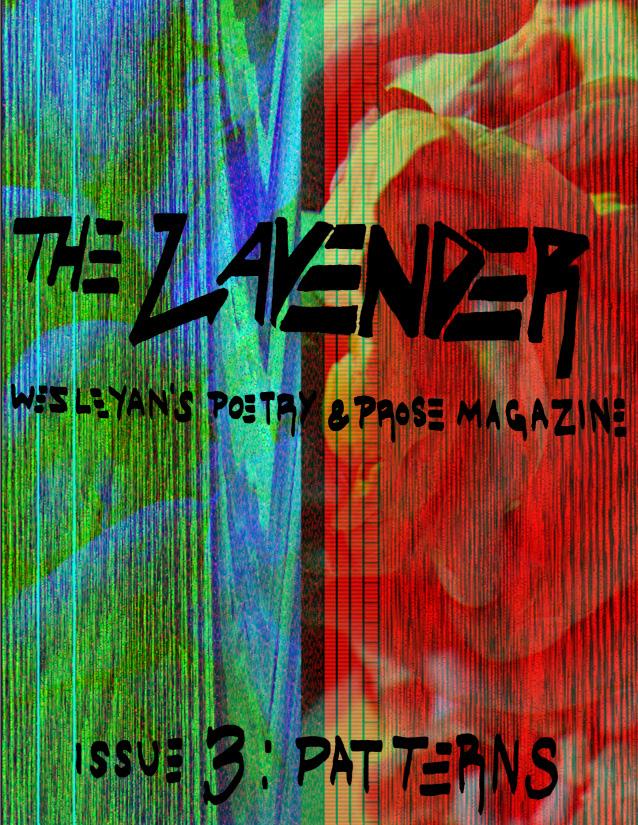
The Route 9 Literary Collective Presents...
Wesleyan’s Prose and Poetry magazine
Early Spring 2022

route9.org
instagram: @route9wes


The Route 9 Literary Collective Presents...
Wesleyan’s Prose and Poetry magazine
Early Spring 2022

route9.org
instagram: @route9wes
The Lavender is Wesleyan’s student-run poetry and prose literary magazine that publishes twice a semester. The literary magazine is run under the Route 9 Literary Collective which also publishes chapbooks, social justice pamphlets, and a once-a-year anthology of writing from Wesleyan faculty, staff, students, along with the work of Middletown Residents.
Route 9 is the road that connects Middletown to the rest of Connecticut. It is the central artery of movement that every Wesleyan student, faculty, staff, and Middletown resident has driven on. It connects us and moves us forward; need we say more?
The Lavender to be lavender. The color was changed because according to an October 1884 issue of the Argus, lavender was not suitable for intercollegiate sports. “Lavender is not a striking color,” the editorial proclaimed. Well, 1884 critic, we here at The Lavender
Editor-in-Chief
Oliver Egger
Poetry Editors
Jane Hollander and Emily Hollander
Prose Editor Immi Shearmur
Design Editors
Cate Levy and Bell Rush
Assistant Poetry Editors
Casey Epstein-Gross and Michaela Poynor-Haas
The Team
Sabrina Tian, Amanda Ding, Georgia Groome, Ruby Levitin, Clara Martin, Maya Scheinfeld, Abby Frankenberg, Carissa Herrera, Olivia Sharenow, Sammi Hage, Sonia Menken, Jake Gale, Abby Frankenberg, Caroline Asnes, Ariana Blaustein, Shaniya Longino, Samantha Hager, Emma Goetz, Ella Spitz, Maya Scheinfeld, Victoria Dozer, Sylvie Pingeon, Julia Gardner, Milly Berman Tatiana Wolkowitz, Natalie Horberg, Ben Togut.
Cover Design
Carmen Scott-Henning
Logo Design
Leo Egger
Snack Specialist/Snack Savior/Snack Supplier
Maggie McCromick
Special Thanks to
Kate Cilkowski-Winters, Tobias Matz, Annabel DeMartino, Ruby Baden-Lasar, Annie Wendorf, The Wesleyan English Department, John Murillo, The SBC, and German Haus for continuing to allow their home to be our weekly meeting place.
How about this? Another whole edition of The Lavender. We’re falling into the pattern: the meetings, the edits, the conversations, the events, new edition, the meetings, the edits, the conversations, the events, new edition, then all over again. That might sound a little depressing but it’s not at all, it’s the opposite really. Out of nothing we created something, an engine that is running on and on almost on its own, day after day sharing the writing and art of the Wesleyan community. My favorite part of this project has been seeing how The Lavender has been able to grow, how new people are joining the team, are sharing their writing and art. This brilliant pattern of creation and sharing is continuing but it’s growing more and more vivid, more and more rich with each passing meeting, each new work of art.
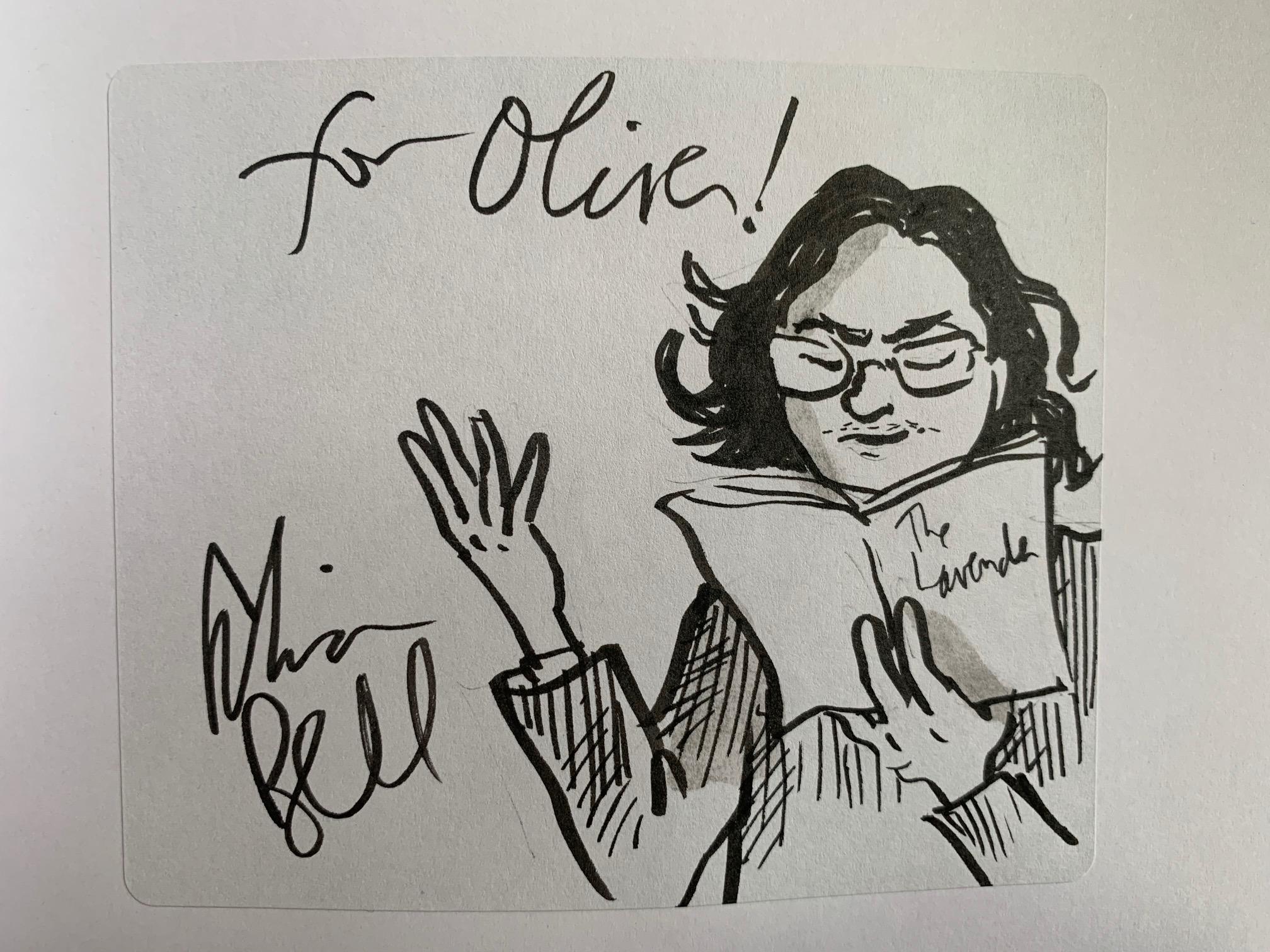
I hope you are as moved by the work of your peers as I am. I hope you write. I hope you draw. I hope you make shit. I hope you read. I hope you keep this copy somewhere special. I hope our paths converge if they haven’t already. I hope you know you’re always welcome in this community. I hope you enjoy the third volume of The Lavender.
With gratitude,
Oliver Egger Editor-in-Chief

Oh I am soooo lanky
Loving arms ‘n’ kicking you
Know I could hug you across the globe
Gravity laws obey bony Ella
So bring me mountains and hills Hell I live like saturn
So give me shoes that could walk on oceans
Others couldn’t ever answer neptune’s song
Oh you too want to be this lanky Limbs all nearly know yesterday
Go bang the drums so I can dance
Dangling arms, neck, chasing ego
So what do you know about being this gangly?
Guess a nother god loves you
O nly I am this lanky Legs, arms, now kicking you
Sometimes after I drink I wake up feeling like an empty barn wooden-posted wind-slapped a center containing still air I want to feel here I am here I am but instead I am the vacancy gaping hole, sitting up in bed, dispossessed by a lack of the something, whatever it is. Space, the thing which dies as a nothingness with edges. I have been other things, too, like when I worked at the bakery and I awoke from a dream where I had been the stale slices of bread sitting in dry plastic bins on the shelf. In bed asleep most acutely I had been them, waking with a body I barely recognized bread for skin, skin dry like old bread. Oh strange and transitory life, rest a cool hand to my cheek bring my body from the places it is not, remind me here I am, somewhere here there is a center.
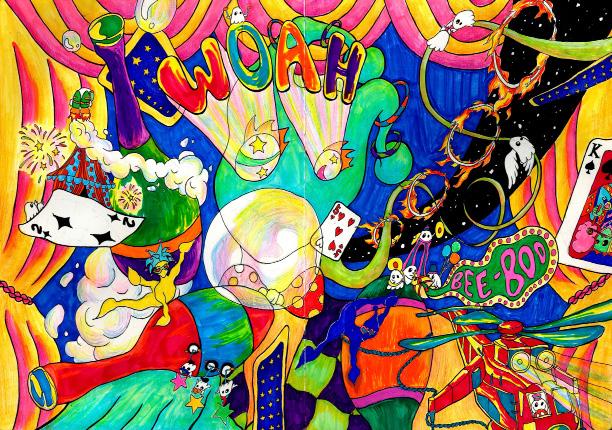
There’s a party on at Whitehall Palace
All the servants are criminals and everybody is pretending not to know
Dara said she wouldn’t come if David didn’t and David didn’t
It’s Sylvie’s party but she’s not home
Sylvie is a pig grease-laden glutton gluey, drowning most likely in something,
Stuffed to satisfaction poked through bloody bleeding
Sixteen sick teen skinny sickly sickly sylvie—
Sylvie all laced up and in skirts, not home—
That salted breeze which wafts along the trail,
Which winds around the dunes awash in blue
And tacked with pines; that which pulls me and you
To thread past clattered brambles, and climb, Excites our sleepy eyes to pour wide ‘round
That which unravels slow, on that ocean who stirs
Together persistent reminders of this:
Tapestried living, a lattice love sutured
Soul-deep. Down the dunes swoop into themselves, Mere grains tumbling seaward, here clot where sand
Meets tide, and tide meets newly blossoming sky –
Who knows for sure the fresh sun rose right then?
In dashes toes coast – those staggering waves
That run, seeking light upslope a swell’s curl
Flat buckling to the shell-spangled sand bar;
The skin of sunrise dropped recedes through pores
Back to sea. There’s no stopping it, no pause
When a coiling wave hooks white fangs just roll –Unwind, rewind, rear back – always rears back;
Resounding heave and thrash become foreground, Then background, breathing steady, steady, awe.
That seagull – watch close – rocks buoyant on waves
Underfoot, silken channels of wet sand twine
Like rivers surging home, then lap the tides,
As forked neurons – when I see you – cast sparks
Of saltwater. Fizzling wave tips feel that pull,
That is the nervous system, crackling, sweet
But sticky taffy, stretching to fasten self
How it hungers for a world brimming with taste.
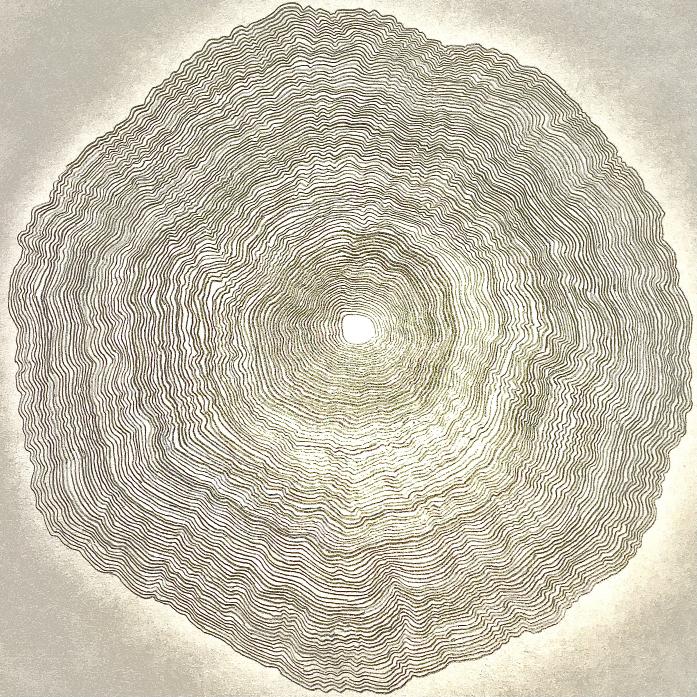
Crinkled tissue paper streamers hung along the sagging ceiling
There are people in this room feeling empty, moving freely as the holographic DJ sips his drink And through the window is the planet time forgot
A party here on Mars, I would’ve thought there would be more I don’t know what
sat with my tights clinging to the velvet seats of Lincoln Center, with my mom to my right, eyes wide behind her glasses. Going to the ballet was our thing. every time the dancers went on pointe. I often peered down at my own calves, of violins, I would return to my viewing stature: legs tucked under the seat and my back hunched over so that I could rest my elbows on my knees in order to prop my head up for the perfect viewing angle. I wanted to be elegantly tossed in the air by in pillows by my two older brothers. At nine years old, I could only imagine. When the house lights rose and the sleepy husbands were awoken by backhand smacks from their wives, I jumped out of my seat and pivoted toward my mom. Stuck in the storyworld of Swan Lake, tears held onto the brims of her eyes for dear life. I couldn’t possibly have the same visceral reaction she did; My brain could only focus on the feathery costumes, the bulging muscles, and the haunting music. Luckily, at that age, I didn’t need to understand immorality and undying love. Fourth grade was chaotic and confusing in different ways. The week prior, on March 14th, Zachary Lepak asked me to check “yes” or “no” if I liked him. I did not, so I checked “no” with a big X mark. The next day, he said I was a “Mean with a capital M.” I was just being honest. I would like to look at Zachary like a ballerina looks at the man moments before a pirouette, but I knew that kind of look couldn’t dare be faked, so I didn’t care what he thought.
I also didn’t care that my Mom said I looked too “wacky” for Lincoln Center. My white and pink polka dot skirt landed a few inches above the knee and my mismatched socks below (The left sock was covered in cartoon candy bars and read “Sugar monster,” and the right was all black, to balance it out). To top it off, I wore a purple knit sweater to protect me from the confusing chill of March in New york. While my mom’s linen Eileen Fisher dress and knee-high black boots blended in with the crowd, I sat in the audience with pride, in my colorful masterpiece of an
Since Act I had come to a close, I interrupted my Mom’s tears and said, out her entire wallet, knowing that the snack bar tends to be ridiculously overpriced. In spired by Odette, I lept and spun myself into the lobby, sashaying through the of sweets. An elderly woman in a long, silk, eggplant-colored dress stood in front of me in line. Her purse matched her black patent leather shoes and I marveled at her coordination and poise for a few long seconds before returning to my choreography. “I liked your dancing,” she said. I gave her a shy smile, tilting my head toward my shoulder. Her compliment disrupted my candy-related ruminations and I began to wonder, at what age will I no longer be complimented when I clumsily dance through a crowd of adults?
I paid for my twizzlers and ripped open the package before returning to my seat. Curling up next to my mom, I watched the woman from the snack bar line saunter over to her seat and sit with perfect posture. I marveled at her class as the lights went down for Act II.
A name that I would spell over and over in elementary school because it was my own, exploring the shape and curves of each letter, the richness of each syllable: A N D
R E S
until it became a title without a novel, a shout without an echo, a star
Andres
The name of a Peruvian politician, a father, someone I’ve never met but whom my mom knew and admired and respected so much she gave me his name, bestowed upon me like a divine right, a crown encrusted with turquoise and topaz.
Andres
A name that sounds more South American than North Carolinian, that is one letter off from Andrew, that most people interpret in their own special way (Andre-as, Andre-us, Andre) to the point where I don’t know myself how to pronounce it because I only know a handful of Andreses, and I cannot roll the ‘R’s as well as my mom can, and I don’t spell it with the accent above the ‘e’ like my dad does.
Andres “Manly.”
Something I’ll never be,
something I recoil from as if it was a slap, something I didn’t want to be so bad that I sought to change my name in middle school when I realized I was not a man, which is something my parents didn’t realize when I was born.
Andres
A paragraph on Urban Dictionary longer than this poem and riddled with typos that detail all the “Good Looking Attributes” that make Andres “Stand Out From The Rest,”
Someone who “is a one of a kind person…” who is talented in the arts, whose name tastes as sweet as fresh tears and will be featured front and center on movie posters, promoted in big-budget Super Bowl commercials, spoken in homes and on the playground, celebrated and venerated because “You will not meet more than one Andres in your life.”
Andres
A name that I may or may not lose sight of further down the road as it’s a boy’s name and therefore makes me a male. But it is also my own, and it’s an identity, one I can hold cupped in my hands and mold however I want like a piece of clay, like a piece of my heart; a pulsating organ, a drum beat, a pride.
I am against you; That is: I am opposed to you.
I am against you;
That is: I am leaning on you.
I am against being together;
That is: I don’t want to be together.
I am against being together;
That is: I am touching our togetherness.
Against together, we are together;
That is: we repel each other;
Against together, we are together;
That is: we are holding each other.
Against the againstness of togetherness;
That is: togetherness is not for us.
Against the againstness of togetherness;
That is: we wish “together” meant “together.”
Together the togetherness of againstness;
That is: together, we are a facet of againstness.
Together the togetherness of againstness;
That is: when we are against each other, we are actually together.
Together against and against together; That is: we are.
I am against you; That is: I am opposed to you. I am against you; That is: I am leaning on you.
I am against being together; That is: I don’t want to be together. I am against being together; That is: I am touching our togetherness.
Against together, we are together; That is: we repel each other; Against together, we are together; That is: we are holding each other.
Against the againstness of togetherness; That is: togetherness is not for us. Against the againstness of togetherness; That is: we wish “together” meant “together.”
Together the togetherness of againstness; That is: together, we are a facet of againstness. Together the togetherness of againstness; That is: when we are against each other, we are actually together.
Together against and against together; That is: we are.

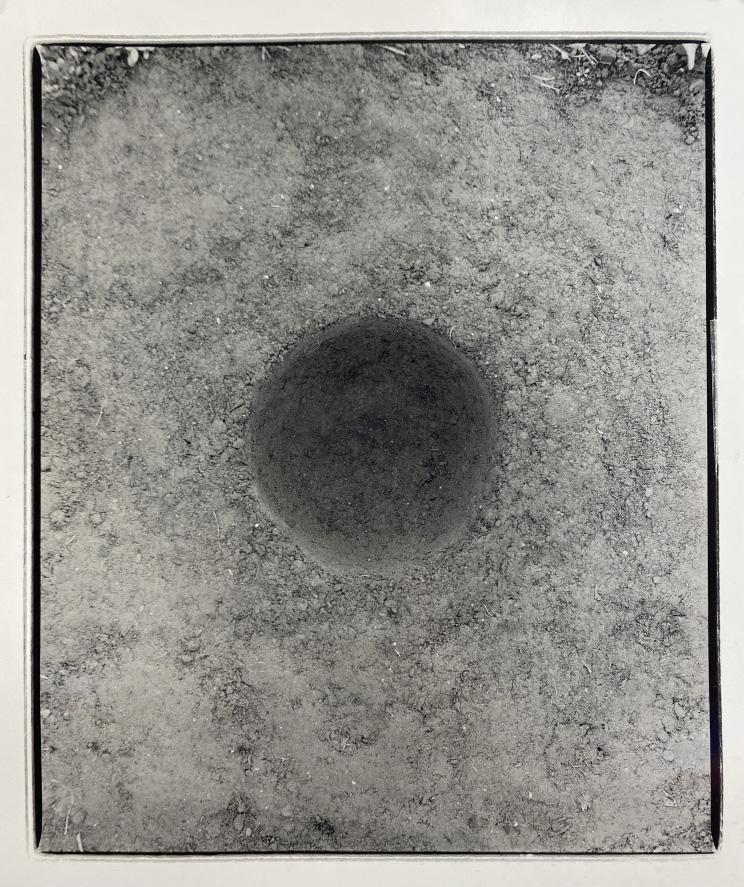 Finn Kassell Osborne
Finn Kassell Osborne
the bedtime story. As a child I was an anxious sleeper; more truthfully, I was an anxious child. I hardly ever had trouble sleeping, but it seemed that those instances that I did produced in the waking world the ghoul of a sleepless night, following and taunting me until at last dissolving in sleep despite the plentitude and depth of my dreams. Often, it was right as I decided I might have dreamed the sleeplessness itself that it attacked again; right after I forgave myself for whatever grave transgression I might have made before bed that could have led to the trauma.
Every hour of a child’s sleepless night is an eternity. On the ceiling dance the shadows of impossible intruders, plotting the demise of sleeping children. As the moon shifts, its angle piercing newly through the gaps in the curtains, novel shapes emerge that bring with them novel fears; kidnapping, loss, death, insomnia worst of all. The moon shifts incrementally still and its light forges a new home in the gap between wall and poster, throwing shadows upon the face of a singer turned evil and plotting along with the ceiling shadows, a new ally.
I found a way to incorporate every new piece of information I absorbed about sleep into my anxieties; in sixth grade, my health teacher advised the class not to use our beds for anything other than sleep. I closed my eyes to shut out the oppressively lit classroom and place myself instead in my calming lavender room, staring at a bed covered with magazines, chords, scissors, and clothing rejected for this particular school day. I shuddered. I bounded home that day, eager to clear my bed of evidence of anything besides sleep and wash my sheets as an apology for my indiscretion. At the height of my superstition, I was captive to a laundry list of perfect sleeping conditions, including keeping only my left sock on and vowing not to speak for a half hour it might artfully descend upon my quietude, a canvas perfectly primed for the splatter of dreams to come.
Because of my thirty minute silence mandate, I told my parents that bedtime stories had to be just that; stories. This came as a surprise to my dad, who had a tendency to conversate as he told stories, so we could create together a world that we would deepen and explore night after night.
Once upon a time, there was a man with three legs and three feet. You might think this counter-intuitive, but walking was very hard for him—he could never get a rhythm in his head for which foot should lead and which should follow, whether he should walk sideways with his in total exasperation, the man threw himself to the ground. Expecting to hit the dirt and begin to focus more on the pain of impact than on his frustration, he found that his head was right back around. Nobody had caught him and propped him up, and it surely wasn’t the wind that did so— the man was quite large, you see.
He decided to try again, this time with his eyes open so he might catch whatever supernatural force prevented his head from hitting the ground. As he threw himself to the ground, or attempted to, he saw that his feet caught him and his hands hit the ground and spun him like a wheel back to his starting position. The man was amazed! He did it again and again, twice, three, four times in a row. He was cartwheeling all over the place. Without realizing it, he cartwheeled all the way into town and over to a mysterious colorful sign.
Do you know what that sign said?
Any and all answers were accepted. Whatever I said, he would respond with a resounding YES, how did you know? You are so smart. And the story would continue. And do you know what they said to him? Right again! Are you reading my mind? On and on we’d go, creating the world in front of us as a never-ending matrix.
After I’d made my vow of thirty minute silence, this storytelling method became a horrifying affront to the commitment I had made to sleep; I would not aid in the deterioration of the progress I had made; I was to have no hand whatsoever in the creation of stories. They must be crafted and then articulated to me in a manner as complete and succinct as that of chapter books. If bedtime stories before this point were a sea of possibilities, my refusal to contribute left my father stranded on a desert island in the middle of that sea with waves slowly creeping up, soon to swallow the tiny hill of sand and the master storyteller along with it.
My father didn’t want to be swallowed, forever forgotten, bested by the seas he once ruled alongside me. Instead of attempting the feat of telling new stories alone, blindfolded down a dark hallway of a ship navigating that tempestuous sea, he receded into himself; a bird above the storm. From the reserves of his mind, he pulled out ancient myths and folk tales that he had gathered over the years. I’ve always been in awe of his capacity for memory; names, dates, the complex web of relationships between gods and goddesses, the minute details in the margins of history textbooks. He was acquainted with the world as a big juicy orange and he revealed it to me slowly, ever so carefully peeling to make a continuous spiral. To lay that spiral on the know that until later.
And so began my fascination with myths, pouring out of the reserves of my father’s memory and assembling an aura of magic and intrigue around my bed. For a time, I thought often of the myth of Procrustes, a buff Greek man who would stand at the side of the highway positioning himself as a checkpoint. He measured those he encountered and let them pass untouched only if they were the perfect height. If they were too large, he would cut their limbs shorter. If they were too small, he would stretch them on what I always imagined to be a splintery wooden plank divided in two parts that separated with the rotation of a ship’s helm. Secretly, Procrustes was my hero, my dream pitstop on the highway of life.
As I’d get dressed in the morning before school, I’d lift up my shirt and stare at the curves of my body in the mirror, ever shifting, ever angering me, belittling me, cannon fodder for my insecurities. I imagined the long stretch of Walton Avenue between my father’s house and school without the houses that adorned its sides; instead, I pictured a vast expanse of empty road, ever extending before my eyes, with a barely visible speck in the distance. As the car
Procrustes. I imagined my father to be the perfect height; he’d come away unscathed. Myself on the other hand… I would jump happily onto the draconian contraption to stretch my shortness and pudginess away. I hated my height, I hated my body. I’d emerge a newer, more remembering stories would improve. Procrustes poked at my desire to alter my body, to undergo pain and discomfort as a means of self improvement. Even despite the pain I’m sure it would encompass, I wanted my body to become something wholly different, unrecognizable, yet so intrinsically bound to me that I would be praised for its greatness.
The myth of Procrustes revealed in me my own grasping for control of my body and the space it inhabited. I can easily tie a bow around this story but there is a vastness around it that governs its logic but avoids rearing its head. Where does self-scrutiny come from, when did I boundaries and twists me in and around myself, providing me with new stories upon which I
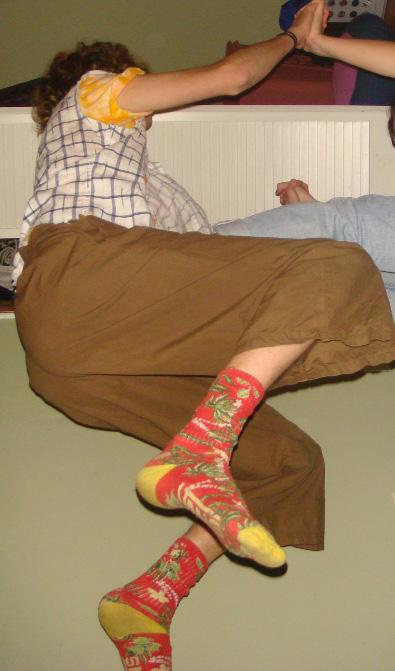


 Bell Rush
Bell Rush
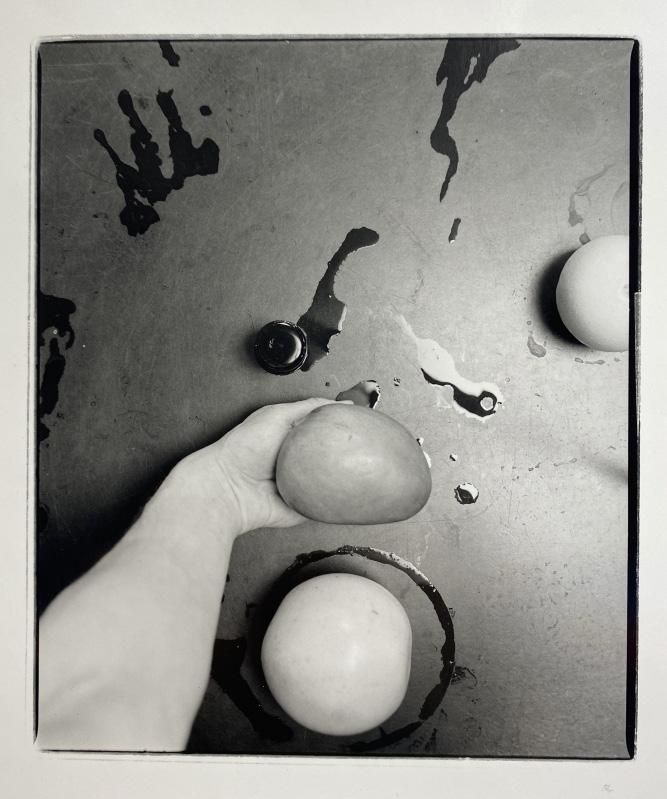 Finn Kassell Osborne
Finn Kassell Osborne
yellow plaid pants, striped tee, cable knit sweater, polka dot panties. I never should have shown you my buttons.
Now you’re in my bathroom and I hear you wrestling the lighter, smell you taking a drag. I notice how dry my mouth was.
Tomorrow my roommate will come home and smell failure. “Relapse is part of recovery,” I’ll have to say.
I threw out your toothbrush last month. I’m hoping you notice. Then, when you come back to bed, you’ll see me lying spine to the headboard, head to the wall. You’ll stink your pathetic way back under the covers, all blue. You’ll ask me about the toothbrush. I’ll shrug, all cool. I’ll lie there thinking about how long laundry would take tomorrow, how long it would take to make the bed how you wouldn’t even help me because you’ll only lie by my side until I’ve slipped into the slumber hole, and in the morning I’ll be alone to sniff the sheets and soberly atone for it.
You’ll try to touch my hair, I’ll remind you that I don’t like it. You’ll tell me you’re sorry, I’ll tell you I know. You’ll ask me to smoke, I’ll tell you I quit.
Whatever you do, don’t open up that bathroom door. Don’t let that awful smell inside.
Tempur Pedic® Island’s reefs are dying, its skies have been grey all summer long, and the environmental conservation committee just said it can’t take another blow.
I thought I told you to smoke outside.
The year City curled up, went to sleep, & died it grasped at the corners of the wind. The curtain peeled back, that motion picture skyline, a gunshot wound punctured grainy canvas, revealing blank screen. Just slabs of concrete & iron never combusting into ruin, just swallowing things whole or chewing them up only to spit them back—only feeding insatiable greed until nothing is left to want.
The year City died it laid in the cradle of the beast, the before it watched itself weaken & wither away. Decomposition leaves barren bones Exposed. Silent curbs, empty but for few remaining artifacts: masticated gum slackened with real human saliva & blackened into the sidewalk, fossilized. Motionless, but for the miasmic gush from the sewage grates under waterlogged blocks of fallen steel, no one left to yearn for the long-gone stench of rancid saccharine gingko berries underfoot.
The year City died it missed its own funeral.
No one showed up to wake or sprinkled cremains in the river. It made snow angels in falling ash, knelt in the debris, it prayed for redemption instead of sitting shiva.
The year City died no one packed bags never to return or maybe never to leave again. We bathed in the basins of that festering island, into the septic gangrene bay sunk.
By Myles EdelsonRain wash me clean
Strip me
Back to basics, for I am undone
Seal these wounds
Cicatrix
Strike me with your belonging, your security, your stability
The mark of thrashing winds
boredom and mastering the art of starting over
I lay dormant ‘till dawn
Fragments disidentify themselves in a system, every day replicating the last. Hesitation in speaking, despite certainty. Well, maybe it’s more of a whisper. It is deceitful to tell them you’re maturing. Time passed but everyone seems to stand, static and distinct against dynamic exteriors. In the unfamiliar room, ready to withdraw. But retreating to refuge is retreating to repetition. Noticing cycles surrounding–whenever the sun sets, skies appear bruised. Locating yourself, connecting to stable sounds. Repetition can be comforting, still, once the system of consistency subsumes, can its form be recast?
 Emlyn Mileaf-Patel
Emlyn Mileaf-Patel
through skin and bone and creaking joints, the old man wonders if he might have been… wrong.
living room hearth. It was a routine of theirs. “Why don’t you put on some socks?” dirty.” And so they’ll argue, maybe for minutes, maybe for an hour, voices rising weather and you-literally-have-a-washing-machine and I-don’t-know-where-youfading, they’ll be left with nothing to say. In another time, his wife would have sighed over her crochet, set down her blue and white yarn, and made peace on their behalf. But this can’t happen anymore. Instead, the old man and his daughter will live as long as they can inside the silence of the argument’s end. Then with a “well, argument of the next day.
must be on her way, he’s sure; the weather is delaying her. Or more likely, her absence is a pointed message to him. she’s saying, so you might as well wear some socks.
The old man’s feet are too cold in the empty house to argue with her. He goes to his sock drawer, looks over its precious inhabitants, and chooses his favorites, a blue and white striped crocheted pair. When he puts them on, they warm his feet with the softness of a wife’s peace, the smugness of a daughter’s I told you so.
It’s Sunday, and you’ve set the radio to a church service because you think the hymns are beautiful. You’re sitting in that chair where you always sit, your cheap, plastic laptop in your hands and black coffee on the table beside you in one of those puppy is stretched long on the ground beside your hole-worn socks. You have on your
Your face, as always, is tan and kind, robust, but it’s not as warm with life as it used to be. Your cheeks sag a little towards the ground, and your eyebrows are patchy, matted even, just like your hair, which is thinning, though it somehow hasn’t lost its golden brown. Your age jolts me for a second, bucking up from where I’ve buried it so I don’t have to think about burying you.
You buried your own father when I was eleven and you were sixty-four. I was the only one with you when we found out he’d died. I stroked your cheek as you cried, and I wondered why no tears came to me. The night of his funeral, we slept in his house, and he was not there. I told you I was scared of ghosts. Don’t worry, you said. Ghosts don’t exist.
Now I am nineteen, and you are seventy-one, a number which, to me, means nursing homes and old-fashioned ways and conversations I hold from duty, not because they’re fun. It means death is approaching and your time is over. Make room for the kids.
you’ve formed. I don’t want you to move over. I don’t want you to make room. It seems you mind death less than I do because our house has bones in every corner.
wooden beam. A human leg bone fashioned into some kind of horn, which you proudly show off at any chance you get.
When I beg you to put away the skulls on the dashboard of the car or say I don’t want a bird’s head on our Christmas tree, your response is always the same. You laugh, amused that I could possibly object. They’re so COOL, you say. They’re staying.
thinking about another thing you told me: \hen you’re bored at work, you sometimes myself playing that game with you.
* * *
walking through the woods, veering off the path to pick up a mushroom or a bone. Sometimes, you drag me with you, in search of a “shortcut” through the woods. You lead me through thick stretches of brambles. We hop through bogs of water and mud. The light fades, and on we walk. The woods are, as you say, are your church, and I your weary companion. Five more minutes, you say. Look up ahead. We can see the lights of North Pasture. This was a short cut, I promise. * * *
I see your hands, the little fragments of bone curled around the splinted oars of It was dusk, and you were bending and pulling, over and over, as you dragged us through the water. The light had fallen, and with it, your features blurred and fell away, too. The bright red of my friend’s sweatshirt turned a dark, hazy gray. A black and white landscape, indistinct, but vivid with warm air and the slide of water against wood. Ocean
following our boat, surfacing close and then slipping away. We were drifting towards the rocky shore and the moon was nowhere to be seen. My friend and I were laughing and laughing but also begging to turn back.
Oh just a little farther, you’d said. It’ll be any minute now. Just around the corner. It’s a special moon tonight. You’re gonna want to see it.
* * *
I see your skull, next. Do you remember the skulls you used to bring alive for me when I was little? A splintered, yellowing sheep, Lambie, who you’d placed on the wall of the little cabin in our backyard. She’d gaze out at us with her hollow eyes and fragile,
dried to his frame and his mouth frozen open in a pointy, wicked smile. You’d kneel by the old sailor’s hammock on which I slept, and give voices to these bones. Lambie talked in a high Southern lilt, which poorly masked the lower buzz of your real voice.
Oh my heavens, Lambie would say. You kids are heathens. Your poor father, bless his heart, looking after you.
Smith would then chime in. Bless his heart? The only thing his heart needs is a good cooking, you sentimental fool!
I’d giggle and call out to him: Smith, I missed you. Missed me? Your voice as Smith, jagged and low. Only thing I miss is peace and quiet!
Delirious with laughter, I’d bubble into sleep, and you’d go to your own bed, maybe read a bit. * * *
I see your mouth, bared open in a grin. Your teeth are all yellowed, and you are that choppy way that skeletons move with no skin to hold them together. You are singing to me. The Davy Crockett theme song, and that other song you wrote. Blackbirds, it in a pie. Mmm. Mmm. Mmm. Yum. Yum. Yum.
Every night, you perched by my bed, your wavering , clumsy singing my greeting to the night. Do you remember the questions I used to ask you when you came in at night? Before the songs began.
Would you rather be rich and evil or poor and nice? Out of all the dogs you’ve had, which one is your favorite? If you were on a desert island with me and my sister, and you only had enough food for one of us to survive, who would you kill? And on and on and on.
You handled this assault with remarkable grace, but there was one question I asked which gave you pause; What is the meanest thing you’ve ever done?
memories. Carefully, in that steady, open voice of yours, you said you wouldn’t tell me. It was not a moment you were proud of, and you didn’t want me knowing of it. Instead, you that.
I asked you again much later, and you told me the story you wouldn’t tell me all those years before. It was such a simple one. Mean, yes, but so ridiculous that I could not help but laugh. Yet when you told it, your voice was haunted and sunk slowly to the ground.
* *
I see your eyes as they always are, glazed and blue, water just beginning to pool over – though as a skeleton, they must be hollow holes. The same eyes you used to piece together an anthology of poems about the snow, over a hundred pages long (a copy gifted to almost everyone you know). The eyes you use for those photographs you take, the ones it distorts our world. The eyes that tears spill from at the barest hint of sentiment; a poem, a letter, a Christmas card from some distant family friends. It takes so little for you to give your water to the world.
More bones and more and more. There is so much of you that I never want to lose. I picture myself, after you’re gone, building this skeleton for all of my life. But ghosts are not real. You told me that. So for now, I turn and watch you work. You laugh to yourself,ing. You go back to work. Your hand, as it types, is strong and tan and all in one piece.
 Loren Wang
Loren Wang
Love targeted me, the way a bear dresses up in sheep’s skin
Love was like a casino gamble, trying to win more than the house
Love was like a game of cards, with no idea of who holds the joker
Love was my blanket during winter times
Love was my the shoulder to cry on
Love was my co-captain in the business of life
Love always reminded me to enjoy the present
Love offered paradise, and I believed; it showered me with fantasies
Love promised and delivered; it came once and twice full of hope
Love vowed to stay and I expected charms for the third time
Love then revealed its dark colors
Love tore down my house of cards
Love’s charms wounded like claws
In love, blood and sweat were spilt
In love, promises and seals were broken
In love, my heart was broken
Love took me for granted
Love cut through my speeches
Love acted dumb to my complaints
Love declared blind to my wounds
I see the raw data of sex before me on the screen:
the sterile, blinking red eye of the camera
here is today’s search history:
insect eggs
insect eggs
insect eggs
United Methodist thrift store
here are the questions I cannot answer by myself: why did Larry David leave Seinfeld? where does most salt come from? when were contact lenses popularized?
this is me at my most naked. this is what I have scraped out of myself today.
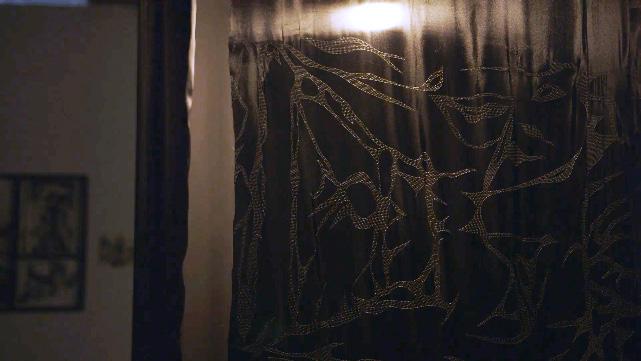 Daniela Eva Sweet-Coll
Daniela Eva Sweet-Coll
 Stefano Canavesio
Stefano Canavesio
cupping dirt in her hands and carefully spreading it over the seeded bed underfoot.
talking to the little juncos nesting in trees walking with her feet placed over the slight shoe-prints left in the dirt. Her train of thought leaves delicate trails in its wake while she she’s making good time.
tying her shoes so she can look down at the earth peeling clementines in the kitchen
looking up at the rain, speaking to a God she suddenly believes in
Salar de Uyuni is one of the thinnest places on Earth, so take great care.
in all directions. Imagine the humans who happened upon this deserted expanse on their way up the jagged Andes mountains. Shocked into awe, the tiny humans is easy to forget what is land and what is sky. It is easy to forget a lot of things. AJ arrived alone and unannounced, which was alright. But he arrived with a earning him the reputation of a millenial Daniel Boone. Thus far, his mighty salary conquistador. This in turn had afforded him bragging rights over the Great Barrier Reef, the citadel of Machu Picchu, and the heat of Death Valley. AJ fancied himself the bravest, most interesting man in his graduating class. His new quest would from the competition. This is all to say, AJ arrived without reverence. My friends, even if you bring nothing else, you must bring reverence.
When the sky felt him there, it cried for his emptiness. The droplets splattered against the hard salt, and spread out into each other. AJ wiped his brow, and looked down only to see himself looking back up. The 10,000 square kilometers of ground
AJ spun around. Every way he looked, there he was. The mirror AJ winked, bewildering the embodied AJ into nauseous vertigo. The Garmin watch counting AJ’s steps beeped to indicate the hour, and suddenly the indicated hours shot neither his hands nor his bearings. The boundary between his feet and the ground in the eternal distance. The villages disappeared.
The sun sank rapidly, then rose again, turning day to night and night to day. The brilliant oranges of the rising and setting sun shone above, below, beneath the sky orbited AJ in tandem with the sun. Perhaps AJ did the orbiting. What was his name again? Sun? Earth? Son? Or perhaps the force that made it all turn? He orbital.
There is no AJ. He was claimed by that other dimension to which eyes are blind. He forgot himself, and joined the oneness. We forgot him, and he never was. An ex-lover’s pulse will rise for a moment as she waits for the subway, but she will shrug it off. An old college friend will feel a tugging in his heart, and in rare quiet lulls in his bedroom alone, he will reach for a memory but fail to grasp longing with lack of everything but what you and I know is missing. Thus, my dear friends, beware of the thin places, where the boundaries between dimensions are paper thin. Their majesty is not to be conquered or back-pocketed. You must be ready to descend, ascend, transcend. You might return wiser and fuller. Or, like AJ, you might not return.
kick it, i tell you what? you ask kick it. that’ll get it started.
the television whines, horrible in its near-human sound static crackling restlessly
on sunday, i wake to the scent of coffee left too long i watch as you put in sugar two spoons full, you never remember how i take my coffee the memory always mixed with something/one else, and drink it half-down.
the radio and the television crackle restlessly waves dancing endlessly out of reach but it’s too late the static is here to stay
the world is ending and it begs for one last day in the sun i will let you loop yourself around me twining our bodies until i cannot tell the crook of your elbow from the tender underside of my aching knee as the news anchor cries and the static nears a fever pitch
world’s ending, you tell me. the truth comes so easy to us now. surprised it lasted this
long, i say and i cannot tell if it is your neck or mine
we are moving in slow circles, and the world is coming to an end and i close my eyes and ask for another sunday to make its way to us so that we can have this shining moment
oh, you say outside, the world is too bright and it smells of ash and endings
it was too sweet, i tell you at last but you can try again tomorrow.
you’re right. i can.
the world is ablaze. we are ablaze, burning, twining, they will not be able to tell where your ashes end and where mine begin.
but all i am asking for is another sunday and in this one i will ask for another cup of coffee and i will drink it down
and tell myself that it is perfectly bittersweet
 Nicki Klar
Nicki Klar
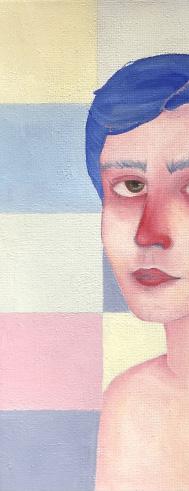

“I am against being together; That is: I don’t want to be together. am against being together; That is: I am touching our togetherness.”
–
From Against Together by
Georgia Groome
